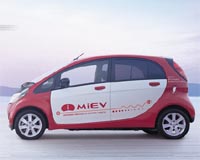 |
Pyeongtaek, South Korea (AFP) Aug 5, 2009 South Korean police commandos mounted a dramatic helicopter-borne raid Wednesday to try to end a factory sit-in by strikers wielding firebombs and metal pipes. Police said about 50 people were injured in clashes at Ssangyong Motor's plant, which was taken over by unionists fighting plans for mass layoffs designed to save the loss-making firm. Police rappelled from helicopters onto the roof of the paint shop, the last building still occupied by the strikers who were evicted from other areas. Other officers inside three containers lifted by giant cranes landed on a roof adjoining the paint shop. Two helicopters dropped liquid tear gas on the strikers. More than 500 unionists, armed with steel pipes and giant slingshots firing nuts and bolts, remain holed up inside one section of the paint shop, which is packed with inflammable materials. National police chief Kang Hee-Rak urged management and strikers to reach a compromise to avoid an operation to retake the entire building. "Safety should be the top priority," Yonhap news agency quoted him as saying. Local firefighters said three strikers were slightly injured Wednesday in addition to 46 police. Some 27 people were injured on Tuesday at the plant 70 kilometres (43 miles) south of Seoul, where thousands of riot police have assembled. The firefighters were trying to put out small blazes. Witnesses said black smoke billowed over the entire auto company complex, as unionists hurled firebombs or burnt tyres. The company in February won court protection from creditors and China's Shanghai Automotive Industry gave up management control. Court-appointed managers have since tried to turn it around through job cuts and cost savings. The programme calls for the sacking of 2,646 workers, or 36 percent of the workforce. About 1,670 of these have taken voluntary redundancy but others began an occupation of the plant on May 21. The union had warned in a statement that it "will fight to the death should police forcefully break up the occupation." The standoff has cost about 300 billion won (244 million dollars) in lost revenue. The country's smallest auto firm specialises in sports utility vehicles and luxury sedans. Surveys show South Korea's reputation for workplace strife has been a factor discouraging foreign investment. But despite the scary scenes at Ssangyong, analysts say employees are generally becoming more pragmatic. Several individual unions have recently quit the militant Korean Confederation of Trade Unions (KCTU). Kim Il-Young, a policial science professor at Seoul's Sungkyunkwan University, said the Ssangyong case is a weather vane for the future of the labour movement. Labour and other groups which gained power under previous liberal governments feel a sense of deprivation under the current conservative administration, he said. "They are getting more militant and politicised, resorting to more extreme tactics. "But more and more ordinary union members believe such political slogans are anachronistic and do not promote their economic interests," Kim said. "Interference by third parties such as the KCTU has aggravated the dispute at Ssangyong." Kim Jeong-Han, a researcher at the state-run Korea Labor Institute, said unionists had become more pragmatic since the Asian financial crisis caused mass layoffs in the late 1990s. But he noted that layoffs are taken more seriously here than in the West. "If a South Korean worker in his forties is told to leave work, it's like a death sentence to him because he thinks he will never come back to work. "That explains such a life or death struggle at Ssangyong," researcher Kim said. "In Western countries, laid-off workers sometimes come back to work thanks to flexible labour markets. Though laid off they are properly protected by social welfare systems. But that's not the case in South Korea." Share This Article With Planet Earth
Related Links Car Technology at SpaceMart.com
 Japan electric car makers, utility plan battery-charge stations
Japan electric car makers, utility plan battery-charge stationsTokyo (AFP) Aug 5, 2009 Three Japanese electric car makers teamed up with the country's largest power company Wednesday to study ways to building a grid of battery charging stations for zero-emission vehicles. Nissan Motors, Mitsubishi Motors and Subaru-maker Fuji Heavy Industries said they would set up a committee with Tokyo Electric Power Co. (TEPCO) to discuss ways to standardise and promote their battery-chargi ... read more |
|
| The content herein, unless otherwise known to be public domain, are Copyright 1995-2009 - SpaceDaily. AFP and UPI Wire Stories are copyright Agence France-Presse and United Press International. ESA Portal Reports are copyright European Space Agency. All NASA sourced material is public domain. Additional copyrights may apply in whole or part to other bona fide parties. Advertising does not imply endorsement,agreement or approval of any opinions, statements or information provided by SpaceDaily on any Web page published or hosted by SpaceDaily. Privacy Statement |